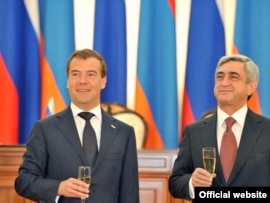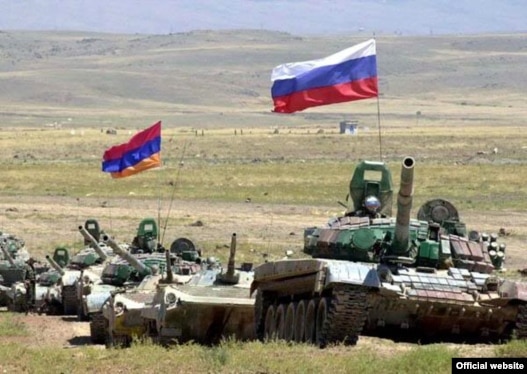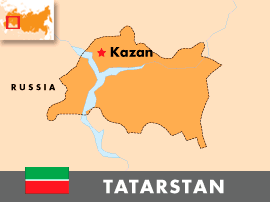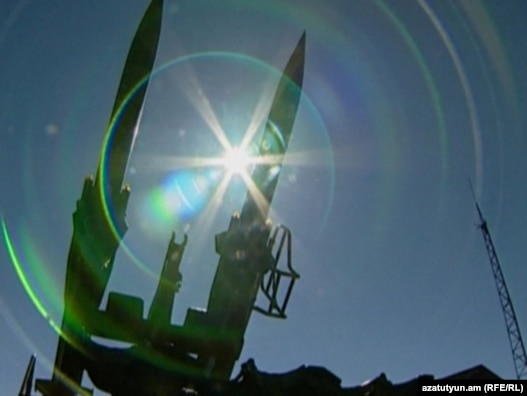
That’s what the Russian newspaper Nezavismaya Gaezta says, citing Azeri news reports alleging Azeri dissatisfaction with their relations with Russia (summary via RT):
Meanwhile, Azerbaijan and Turkey may have prepared their “symmetrical answer to Yerevan and Moscow,” Nezavisimaya Gazeta daily said. A Turkish military base may be deployed in Azerbaijan as a result of the talks between Baku and Ankara, the paper noted.
“The topic was allegedly discussed during the recent visit of Turkey’s President Abdullah Gul to Baku and his meeting with Azerbaijan’s leader Ilkham Aliev,” the daily said. According to Azerbaijan’s media, the military base may be deployed in Nakhichevan autonomous republic, an exclave between Armenia and Turkey.
The relations between Turkey and Azerbaijan are so close that the question arises why Ankara has not yet deployed its military base in the friendly country, the paper asked. Baku may have expected Russia’s more effective role in settling the conflict between Azerbaijan and Armenia over Nagorno-Karabakh, the daily explained.
Hoping that Russia could “influence its strategic ally – Yerevan – and help to promote the restoration of Azerbaijan’s territorial integrity,” Baku “did not venture on strengthening a pro-Turkey vector or another one,” the daily stressed.
However, the authorities in Baku think that “expectations were overestimated” as the situation over Nagorno-Karabakh remains unchanged, the daily said.
“Baku, in fact, has determined the limitation of its expectations after which it will probably try to change the situation in its favor by other actions,” the daily said. “This limit is President Medvedev’s visit to Baku scheduled for September.”
(The original article, in Russian, here.)
One thing notably missing from this analysis is Russia’s alleged pending sale of S-300 air defense systems to Azerbaijan (which Russia continues to not deny), and which obviously should change Baku’s perception of whether or not Russia is selling it out.
And as I’ve discussed before, all of this speculation about a Turkish military base in Azerbaijan seems to be coming solely from Azerbaijan, and not at all from Turkey. And it’s hard to imagine would Turkey would gain from having a base in Nakhchivan.
Still, as EurasiaNet has reported, Turkey has increased its ties to Nakhchivan, and has at least spoken vaguely of military cooperation:
Turkish Prime Minister Recep Tayyip Erdogan went still further, noting that “Nakhchivan is exposed to various threats from the Armenian state.”
“Therefore, military cooperation between Turkey and Azerbaijan and the NAR [Nakhchivan Autonomous Republic] is one of the major components of our relations,” Erdogan said.
Azerbaijan maintains a base in Nakhchivan that has received heavy Turkish support in the past, but no official information is available about the current scope of military cooperation between the two countries in the exclave.
And things are changing pretty quickly, at least in geopolitical time, in the relations between Turkey and Armenia, Turkey and Russia and Turkey and Azerbaijan. So we shouldn’t be too surprised by further big moves to come.
, August 20, 2010






 Armenia — Armenian and Russian army units at a joint military exercise, undated
Armenia — Armenian and Russian army units at a joint military exercise, undated



 Armenia — Surface-to-air missiles at a military base in Gyumri, undated
Armenia — Surface-to-air missiles at a military base in Gyumri, undated
